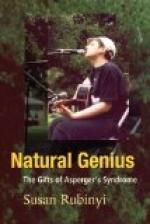* * * * *
Henry Vaughan was the literary offspring of George Herbert. His life, too, might have been written by good Izaak Walton, so gentle was it, full of all pleasant associations and quiet nobleness, decorated by the love of nature and letters, intimacies with poets, and with that especial touch of nature which always went to the heart of the Complete Angler, a love of fishing—for Vaughan was wont, at times, to skim the waters of his native rivers.
He was born in Wales; the old Roman name of the country conferring upon him the appellation “Silurist”—for in those days local pride and affection claimed the honor of the bard, as the poet himself first gathered strength from the home, earth and sky which concentrated rather than circumscribed his genius. His family was of good old lineage, breathing freely for generations in the upper atmosphere of life, warmed and cheered in a genial sunlight of prosperity. It could stir, too, at the call of patriotism, and send soldiers, as it did, to bite the heroic dust at Agincourt. Another time brought other duties. The poet came into the world in the early part of the seventeenth century, when the great awakening of thought and English intellect was to be followed by stirring action. He was not, indeed, to bear any great part in the senate or the field; but all noble spirits were moved by the issues of the time. To some the voice of the age brought hope and energy; to others, a not ignoble submission. It was perhaps as great a thing to suffer with the Royal Martyr, with all the burning life and traditions of England in the throbbing heart, as to rise from the ruins into the cold ether where the stern soul of Milton could wing its way in self-reliant calmness. Honor is due, as in all great struggles, to both parties. Vaughan’s lot was cast with the conquered cause.
His youth was happy, as all poets’ should be, and as the genius of all true poets, coupled with that period of life, will go far to make it. There must be early sunshine far the first nurture of that delicate plant: the storm comes afterward to perfect its life. Vaughan first saw the light in a rural district of great beauty. His songs bear witness to it. Indeed he is known by his own designation, a fragrant title in the sweet fields of English poesy, as the Swan of the Usk, though he veiled the title in the thin garb of the Latin, “Olor Iscanus.” Another fortunate circumstance was the personal character of his education, at the hands of a rural Welsh rector, with whom, his twin brother for a companion, he passed the years of youth in what, we have no doubt, were pleasant paths of classical literature. How inexhaustible are those old wells of Greek and Roman Letters! The world cannot afford to spare them long. They may be less in fashion at one time than another, but their beauty and life-giving powers are perennial. The Muse of English poesy has always been baptized in their waters.




